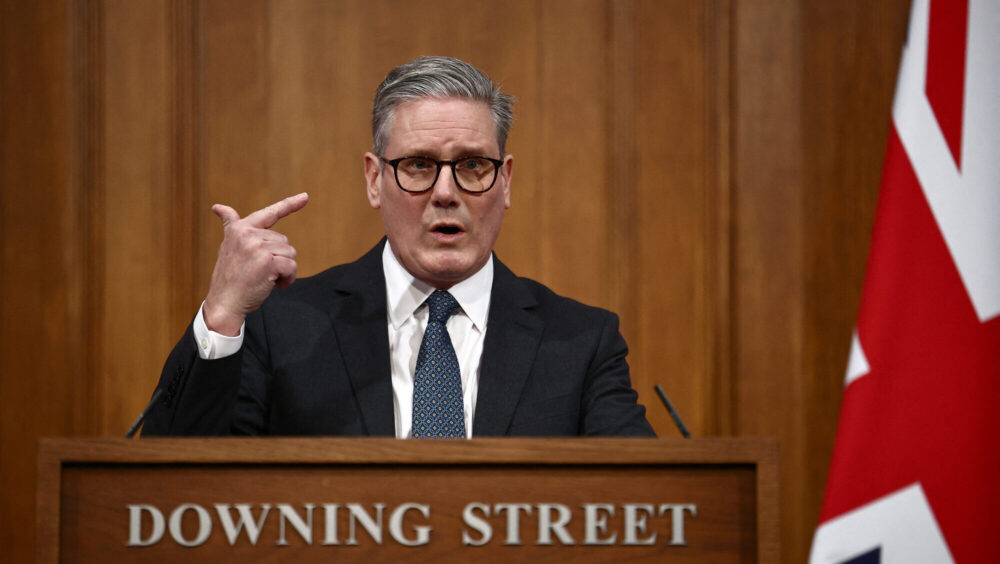
Britain’s Prime Minister Keir Starmer
HENRY NICHOLLS / POOL / AFP
Not only did officials withhold information about the Southport murderer’s terror-related offences, as well as his relationship with their own counterterrorist ‘Prevent’ programme. They also “gagged” police from releasing information which they wanted to unveil, in an attempt to reduce public speculation.
One source told The Daily Telegraph, just days after Axel Rudakubana pleaded guilty to murdering three young girls, that “as far as [police] are concerned the more information that is in the public domain the better as it negates the speculation and conspiracies.” But they were warned by the Crown Prosecution Service (CPS) not to provide details about his religion and his crimes—including his “stockpiling” of weapons and terrorism-related documents.
The state has done its best to keep information secret from the get-go, and to censor discussions, both among members of the public and elected politicians. This has prompted some to question whether the CPS’s efforts to keep police quiet were a result of pressure from above.
Prime minister Keir Starmer’s excuse that officials did not want to prejudice a fair trial by being open with the public does not seem to wash. Not least because even now that Rudakubana has entered guilty pleas, journalists are still “barred” from publishing “the full background of the case” until after sentencing.
Police forces, said Rebecca Camber of the Crime Reporters Association, “have been instructed to stay silent,” which is “undermining efforts to improve police press relations and affecting public confidence and trust in policing and the wider criminal justice system.”
The government has also made it clear it would much rather talk about the fact that Rudakubana was able to buy a knife online (from Amazon) when he was just 17. Reform UK leader Nigel Farage suggested this was simply a distraction; that “the truth is there are murder weapons in every kitchen drawer.”
What we should be talking about is the total failure to stop this terrorist and the cover-up of information that the public were entitled to.
Starmer wants us to talk about how a 17 year old could buy a knife online.
— Nigel Farage MP (@Nigel_Farage) January 22, 2025
The truth is there are murder weapons in every kitchen drawer.
What we should be talking about is the total failure to stop this terrorist & the cover-up of information that the public were entitled to.
This pattern follows what Daily Telegraph journalist Allison Pearson—who was visited by police late last year over a year-old tweet—has described as standard state procedure after “any crime which may or may not turn out to have an Islamist or jihadist component.” It begins with the suppression of information on identity and ethnicity, and later sees “politicians avoid awkward conversations about failures of multiculturalism, mass immigration and lack of integration and suggest the solution may be more online censorship.”
After the murder of Sir David Amess, MPs in the Commons actually said the lesson of his killing by a young, knife-wielding jihadist was that politicians needed to be nicer to each other.
More is bound to emerge about Rudakubana’s past over the coming days and weeks—especially after his sentencing on Thursday—much to the likely frustration of the government and, as Farage now calls him, “cover up Keir” in particular.
